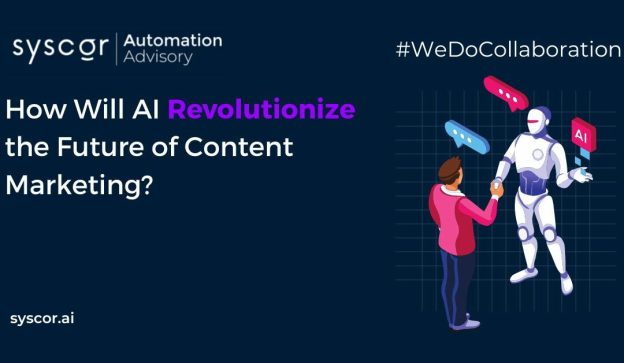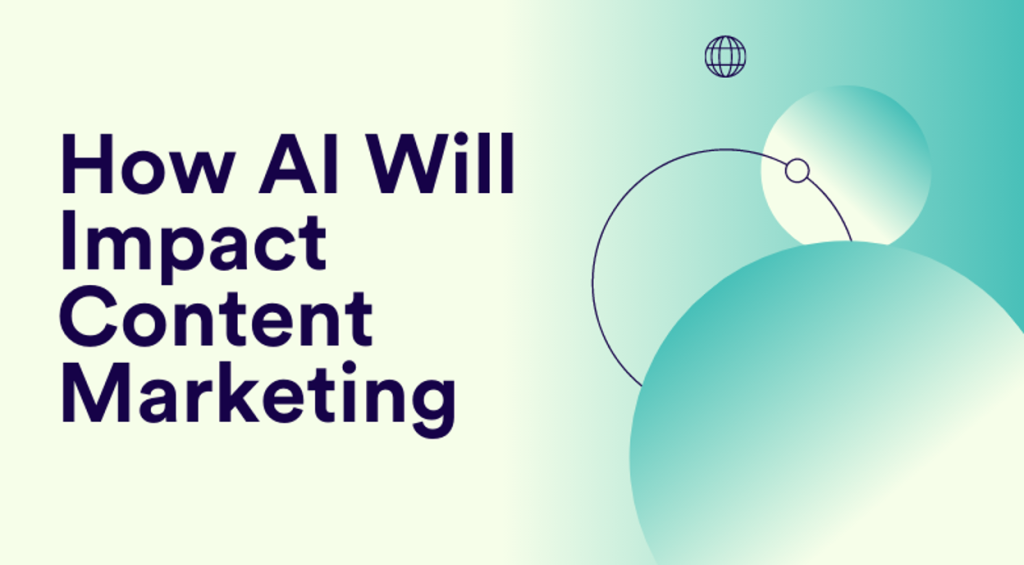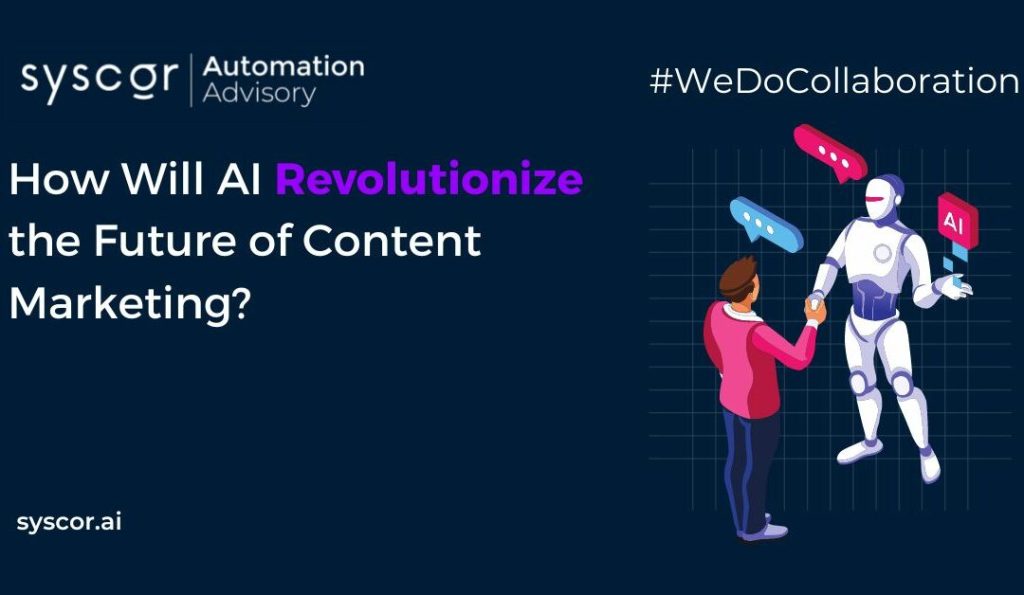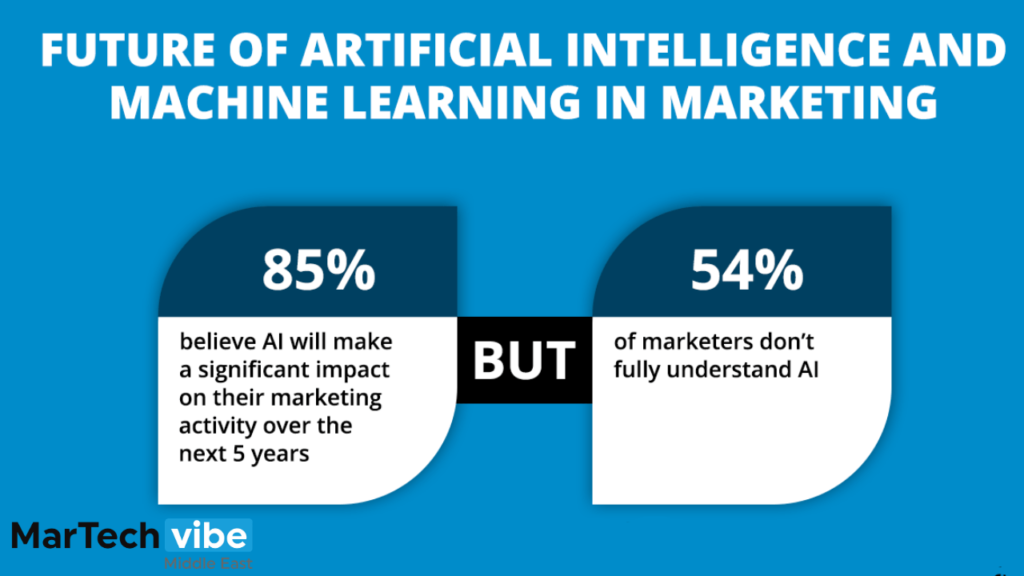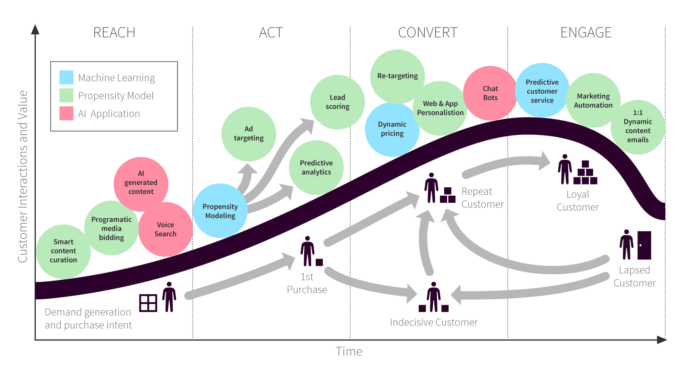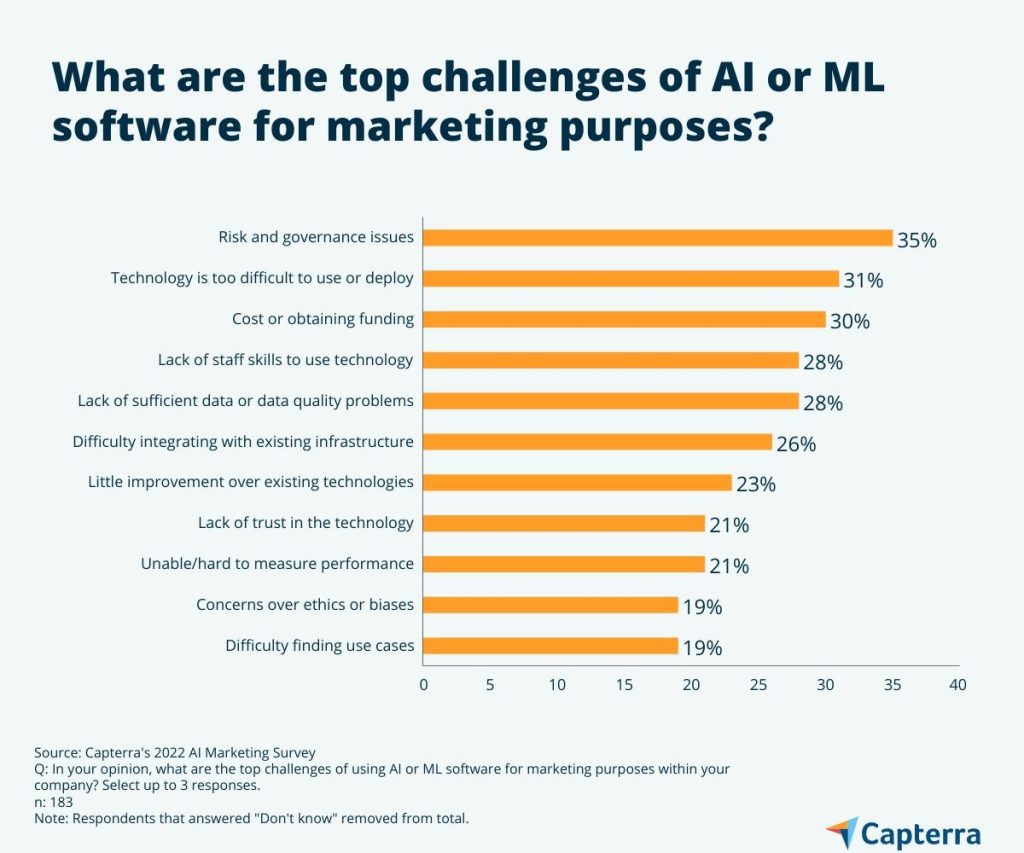Have you ever wondered how artificial intelligence (AI) is revolutionizing the world of content marketing? In today’s digital age, AI has become a game-changer for businesses seeking to engage their audiences and drive results. From intelligent content creation to automated analytics, AI technology is reshaping the way marketers strategize, connect, and deliver value to their customers. In this article, we will explore the various ways AI is impacting content marketing and discuss the exciting opportunities it brings to the table. So, buckle up and get ready to discover the transformative power of AI in the realm of content marketing.

Understanding AI in Content Marketing
Artificial Intelligence (AI) is revolutionizing various industries, including content marketing. It refers to the simulation of human intelligence in machines that can learn and perform tasks autonomously. In content marketing, AI is reshaping the way businesses create, distribute, and analyze their content. By leveraging AI-powered tools and algorithms, content marketers can streamline their processes, enhance personalization, and obtain valuable insights for improved decision-making.
Defining Artificial Intelligence (AI)
Artificial Intelligence, commonly known as AI, is the development of computer systems capable of performing tasks that typically require human intelligence. These tasks include speech recognition, problem-solving, learning, and decision-making. AI algorithms are designed to analyze data, identify patterns, and make predictions or recommendations based on the information they gather. In content marketing, AI plays a crucial role in automating various processes, optimizing content strategies, and enhancing user experiences.
The Role of AI in Content Marketing
AI has become an indispensable tool in the field of content marketing. It offers a range of benefits that can significantly improve marketing efforts and help businesses achieve their goals. From automated content generation to targeted audience segmentation, AI enhances the efficiency and effectiveness of content creation, distribution, and analysis. By leveraging AI technologies, content marketers can optimize their strategies, boost search engine rankings, and provide personalized experiences to their audience.
Advantages of AI in Content Creation
Automated Content Generation
AI-powered content generation tools have made it easier for content marketers to produce a vast amount of high-quality content quickly. These tools use natural language processing and machine learning algorithms to understand user preferences, analyze data, and generate engaging articles, blog posts, and social media content. By automating content creation, businesses can save time and resources and focus on other essential aspects of their marketing strategies.
Improved Writing and Editing
AI algorithms can analyze written content and provide suggestions for improvement, ranging from grammar and spelling corrections to style enhancements. AI-powered writing and editing tools can help content marketers create error-free and engaging content that resonates with their target audience. These tools assist in identifying and rectifying any inconsistencies in tone, style, or messaging, ensuring that the content is polished and professional.
Enhanced Personalization
AI enables content marketers to deliver personalized experiences to their audience by analyzing vast amounts of data and extracting valuable insights. By understanding user preferences, behavior, and demographics, AI-powered personalization tools can customize content recommendations, offers, and experiences tailored to each individual. This level of personalization helps businesses build stronger connections with their audience and drive higher engagement and conversion rates.
Optimized Content Planning and Strategy
AI provides valuable insights for content planning and strategy development. With AI-powered tools, content marketers can analyze market trends, identify popular topics, and predict content performance. By understanding what type of content is resonating with their target audience, businesses can optimize their content planning and strategize accordingly to create engaging and relevant content that drives results.

AI-driven Content Distribution and Promotion
Targeted Audience Segmentation
AI helps content marketers divide their audience into smaller, more targeted segments based on various criteria such as demographics, behavior, and interests. By leveraging algorithms that analyze user data, businesses can create customized content and tailor their distribution strategies to reach the right audience segments. This targeted approach ensures that the content is highly relevant to the intended audience, increasing engagement and conversion rates.
Improved Social Media Marketing
Social media platforms generate an enormous amount of user-generated data. AI-powered tools allow content marketers to extract valuable insights from this data and optimize their social media marketing efforts. From identifying trending topics to analyzing user sentiments, AI provides content marketers with real-time information that helps them create more impactful and relevant social media content.
Automated Email Marketing
AI-driven email marketing platforms automate various aspects of email marketing campaigns, improving efficiency and personalization. These platforms can segment email lists based on user preferences, behavior, and purchase history to deliver targeted and personalized email content. AI algorithms analyze user engagement data, enabling businesses to optimize email subject lines, content, and timing for maximum impact.
Efficient Influencer Outreach
AI facilitates influencer identification and outreach by analyzing vast amounts of data and identifying relevant influencers based on specific criteria such as audience size, engagement rates, and industry relevance. AI-powered tools can also help content marketers monitor and measure the effectiveness of influencer campaigns, providing valuable insights for future collaborations.
Boosting SEO with AI-powered Tools
AI-based Keyword Research
Keywords play a crucial role in search engine optimization (SEO). AI-powered keyword research tools analyze user search queries, trends, and competition to identify relevant and high-performing keywords. These tools enable content marketers to optimize their content for search engines and target specific keywords that have the potential to drive high organic traffic to their website.
Content Optimization and SEO Suggestions
AI algorithms can analyze existing content and provide suggestions for optimizing it for search engines. These suggestions may include recommendations for title tags, meta descriptions, subheadings, image alt text, and keyword placement. By following these AI-generated recommendations, content marketers can improve the visibility and ranking of their content on search engine results pages.
Automated Link Building
AI-powered tools can analyze websites and identify opportunities for link building. These tools can navigate through various domains, evaluate the quality and relevance of different websites, and suggest potential link-building opportunities. By automating the process of finding and acquiring backlinks, businesses can enhance their website’s authority and improve search engine rankings.
Monitoring Search Engine Rankings
AI algorithms can track the rankings of specific keywords on search engine results pages (SERPs). By monitoring keyword rankings, content marketers can evaluate the effectiveness of their SEO strategies and make necessary adjustments. AI-powered tools can provide detailed reports on keyword performance, competitor rankings, and organic traffic, allowing businesses to stay ahead of the game and optimize their content accordingly.
Utilizing AI for Data-driven Insights
Data Analysis and Reporting
AI enables content marketers to analyze vast amounts of data quickly, providing valuable insights for decision-making. AI-powered analytics tools can process data from various sources such as website analytics, social media platforms, and customer relationship management systems. By visualizing data trends, content marketers can identify patterns, correlations, and opportunities for improvement, enabling data-driven decision-making.
Predictive Analytics for Content Performance
AI-driven predictive analytics tools help content marketers forecast the performance of their content based on historical data, trends, and user behavior. These tools can predict engagement rates, conversion rates, and even the potential reach of future content. By leveraging predictive analytics, businesses can make informed decisions about content strategy, allocation of resources, and goal setting.
User Behavior Analysis
AI algorithms can analyze user behavior data to understand how users engage with content. By tracking user interactions, such as clicks, scroll depth, and time spent on each page, AI-powered tools can provide valuable insights into user preferences, pain points, and areas of improvement. This information helps content marketers optimize their content for better user experiences and engagement.
Market Research and Competitive Analysis
AI-powered tools can collect and analyze market research data, industry trends, and competitive insights. By monitoring competitors’ content strategies, social media presence, and search engine rankings, content marketers can identify gaps and opportunities to differentiate their content. AI facilitates thorough market research, enabling businesses to stay ahead of the competition and deliver relevant and impactful content to their target audience.
AI-powered Customer Experience and Personalization
Chatbots and Virtual Assistants
AI-powered chatbots and virtual assistants have gained popularity in recent years for their ability to enhance customer service and engagement. These intelligent systems use natural language processing and machine learning algorithms to understand and respond to customer queries, provide personalized recommendations, and assist users throughout their journey. Chatbots and virtual assistants provide 24/7 support, quick responses, and personalized experiences, improving customer satisfaction and retention rates.
Natural Language Processing (NLP)
AI-powered natural language processing (NLP) enables machines to understand and interpret human language, both written and spoken. NLP algorithms analyze text and extract valuable insights, such as user sentiments, emotions, and intent. By leveraging NLP, content marketers can create personalized content, tailor messaging to specific audience segments, and automate processes like sentiment analysis and content moderation.
Dynamic Content Generation
AI enables dynamic content generation based on user preferences and behavior. By analyzing user data in real-time, AI algorithms can generate personalized website content, emails, and recommendations. Dynamic content adapts to each user’s preferences, presenting them with relevant information, products, or offers. This level of personalization enhances user experiences, increases engagement, and improves conversion rates.
Chat-based Content Recommendations
AI-powered chatbots and virtual assistants can provide relevant and personalized content recommendations based on user interactions and preferences. By analyzing user queries and behavior, these intelligent systems can suggest blog posts, articles, videos, or products that align with the user’s interests. Chat-based content recommendations help businesses deliver targeted content to their audience, increasing engagement and driving conversions.
Measuring Content Success with AI Metrics
Engagement Metrics and Sentiment Analysis
AI-powered analytics tools can measure content engagement metrics such as click-through rates, time spent on page, bounce rates, and social media shares. These tools can also conduct sentiment analysis to understand how users feel about specific content or brand messaging. By tracking engagement metrics and sentiment analysis, content marketers can measure the success of their content and make data-driven adjustments for better performance.
Conversion Tracking and Predictions
AI algorithms can track user interactions and conversions, providing insights into which content leads to desired actions. By analyzing conversion data, content marketers can identify high-performing content and optimize their strategies to drive more conversions. AI-powered predictive analytics can also forecast future conversions based on historical data, allowing businesses to set realistic goals and expectations.
Performance Insights for Content Improvement
AI-powered tools can analyze content performance data and provide actionable insights for improvement. These insights may include recommendations for content structure, formatting, messaging, and visuals. By implementing these AI-generated suggestions, content marketers can optimize their content for better performance, increasing engagement, and conversion rates.
AI-powered A/B Testing
AI algorithms can automate A/B testing by analyzing user behavior and preferences. By testing different variations of content, such as headlines, images, or calls-to-action, AI can determine which version performs better and generates higher engagement or conversions. AI-powered A/B testing enables content marketers to optimize their strategies, save time, and make data-driven decisions for content improvement.
Addressing Ethical Concerns in AI-driven Content Marketing
Content Authenticity and Transparency
AI-driven content has raised concerns regarding authenticity and transparency. Businesses must ensure that AI-generated content is clearly identified as such, maintaining transparency with their audience. It is essential to disclose the role of AI in content creation to maintain trust and authenticity. Content marketers should also ensure that AI systems do not contribute to the spread of misinformation or fake news.
Privacy and Data Security
AI relies heavily on user data to deliver personalized experiences and insights. It is crucial for businesses to handle user data ethically and prioritize privacy and data security. Content marketers must comply with data protection regulations and implement robust security measures to safeguard user information. Transparency in data collection, storage, and usage is essential to maintain user trust.
Bias and Discrimination
AI algorithms can inadvertently perpetuate biases and discrimination present in the data they are trained on. Content marketers must be aware of these biases and take proactive steps to eliminate them. It is essential to consistently assess and audit AI systems to ensure they are fair, unbiased, and provide equal opportunities to all individuals. Ongoing monitoring and refinement of algorithms are necessary to address and mitigate biases.
Maintaining Human Interaction
While AI can automate various processes in content marketing, it is crucial to maintain human interaction and connection. Businesses should strike a balance between AI-driven automation and human creativity and empathy. Content marketers should supplement AI tools with genuine human interactions and continuously evaluate how AI can enhance rather than replace human touchpoints.
Impact of AI on Content Marketing Strategy
Automating Repetitive Tasks
AI enables content marketers to automate repetitive and time-consuming tasks such as keyword research, content distribution, and data analysis. By automating these tasks, businesses can save valuable time and allocate resources to more strategic and creative aspects of their content marketing strategies.
Enhancing Productivity and Efficiency
AI-powered tools streamline content creation, distribution, and analysis processes, improving productivity and efficiency. These tools automate manual tasks, provide valuable insights, and suggest optimizations. By leveraging AI technologies, content marketers can accomplish more in less time and allocate resources for continuous improvement.
Enabling Personalization at Scale
AI-driven personalization tools enable content marketers to deliver personalized experiences to a wide range of audience segments. By analyzing user data, AI algorithms create customized content recommendations, offers, and experiences tailored to each individual. This level of personalization at scale strengthens customer relationships and increases engagement and conversion rates.
Staying Competitive in the Digital Landscape
As AI becomes more prevalent in content marketing, businesses need to adopt AI-driven strategies to stay competitive. AI-powered tools provide a competitive advantage by optimizing content creation, distribution, and analysis. By embracing AI, businesses can adapt to rapidly changing digital landscapes, meet customer expectations, and outperform competitors.
Future Trends and Possibilities of AI in Content Marketing
Advancements in Natural Language Processing (NLP)
Advancements in natural language processing (NLP) will further improve AI’s ability to understand, interpret, and generate human language. NLP algorithms will become more sophisticated, enabling AI to create content that is indistinguishable from that written by humans. This will further enhance content creation and personalization efforts.
AI-assisted Content Curation
AI will play a crucial role in content curation by analyzing vast amounts of data and identifying relevant and high-quality content. AI-powered content curation tools will assist content marketers in finding, organizing, and presenting the most valuable content to their audience. This will save time, enhance content quality, and drive engagement.
Voice-enabled and Conversational Content
The rise of voice-based AI assistants and smart speakers will shift content consumption towards voice-enabled interactions. Content marketers will need to develop voice-enabled and conversational content that caters to this new mode of consumption. Creating content optimized for voice search and delivering personalized voice experiences will become essential.
Improved Predictive Analytics
AI-powered predictive analytics will continue to evolve and become more accurate. These advanced analytics tools will enable content marketers to forecast content performance, customer behavior, and market trends with greater precision. By leveraging improved predictive analytics, businesses can make data-driven decisions and gain a competitive edge.
In conclusion, AI is revolutionizing content marketing by automating various processes, enhancing personalization, and providing valuable insights for decision-making. From content creation to distribution and analytics, AI-powered tools improve efficiency, productivity, and customer experiences. Businesses that embrace AI in their content marketing strategies can stay competitive, deliver engaging and relevant content, and shape the future of the industry.

